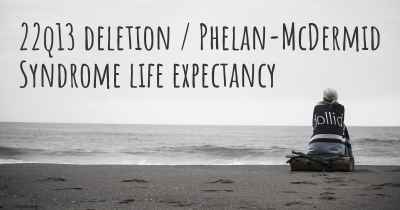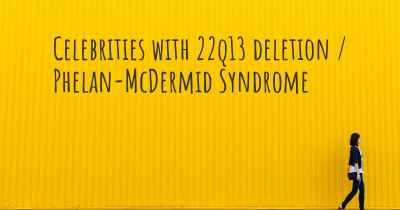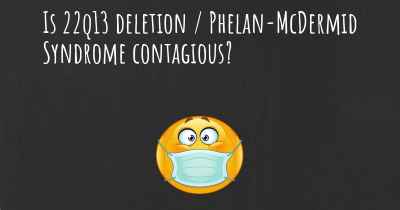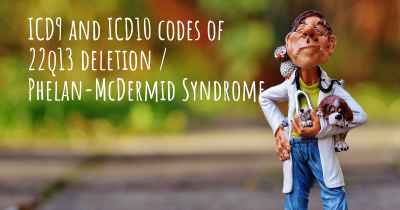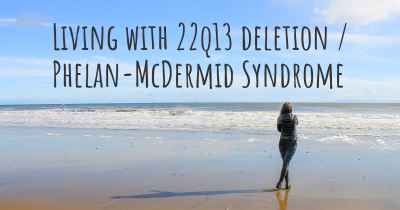Is 22q13 deletion / Phelan-McDermid Syndrome hereditary?
Here you can see if 22q13 deletion / Phelan-McDermid Syndrome can be hereditary. Do you have any genetic components? Does any member of your family have 22q13 deletion / Phelan-McDermid Syndrome or may be more predisposed to developing the condition?

Is 22q13 deletion / Phelan-McDermid Syndrome hereditary?
Yes, 22q13 deletion syndrome, also known as Phelan-McDermid Syndrome (PMS), is a genetic disorder that is typically caused by a spontaneous deletion or mutation in the terminal end of the long arm of chromosome 22. This means that the syndrome is usually not inherited from parents, but rather occurs as a random event during the formation of reproductive cells or early embryonic development.
Phelan-McDermid Syndrome is considered a rare genetic disorder, with an estimated prevalence of 1 in 15,000 to 1 in 25,000 individuals. It affects both males and females equally and is found in all ethnic groups.
Genetics of 22q13 deletion / Phelan-McDermid Syndrome:
The genetic cause of Phelan-McDermid Syndrome is the deletion or disruption of the SHANK3 gene, which is located on the terminal end of chromosome 22. The SHANK3 gene provides instructions for producing a protein that plays a crucial role in the development and function of synapses, the connections between nerve cells in the brain.
Most cases of 22q13 deletion syndrome occur as de novo mutations, meaning they are not inherited from parents. These mutations typically arise spontaneously during the formation of reproductive cells (sperm or egg) or early embryonic development. The exact cause of these spontaneous mutations is not well understood.
Is 22q13 deletion / Phelan-McDermid Syndrome hereditary?
While most cases of Phelan-McDermid Syndrome are not inherited, there have been rare instances where the syndrome has been passed down from an affected parent to their child. In these cases, the affected parent carries a balanced translocation involving chromosome 22, which increases the risk of having a child with the syndrome.
A balanced translocation occurs when a piece of chromosome 22 breaks off and attaches to another chromosome, without any loss or gain of genetic material. Individuals with a balanced translocation involving chromosome 22 usually do not show any symptoms themselves, but they have an increased risk of having a child with 22q13 deletion syndrome.
If a parent carries a balanced translocation involving chromosome 22, there is a 50% chance with each pregnancy that the child will inherit the translocation and be at risk for Phelan-McDermid Syndrome. Genetic counseling and testing can help determine the risk of passing on the syndrome in these cases.
Conclusion:
In summary, 22q13 deletion syndrome, also known as Phelan-McDermid Syndrome, is a genetic disorder caused by a deletion or disruption of the SHANK3 gene on chromosome 22. While most cases of the syndrome are not inherited and occur as spontaneous mutations, there have been rare instances where it has been passed down from an affected parent with a balanced translocation involving chromosome 22. Genetic counseling and testing can provide more information about the risk of passing on the syndrome in these cases.
